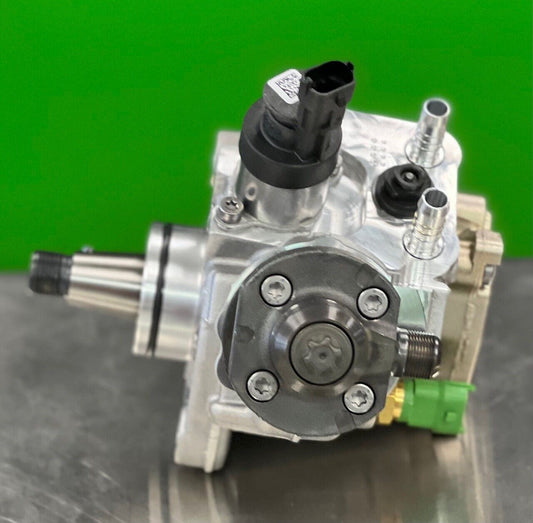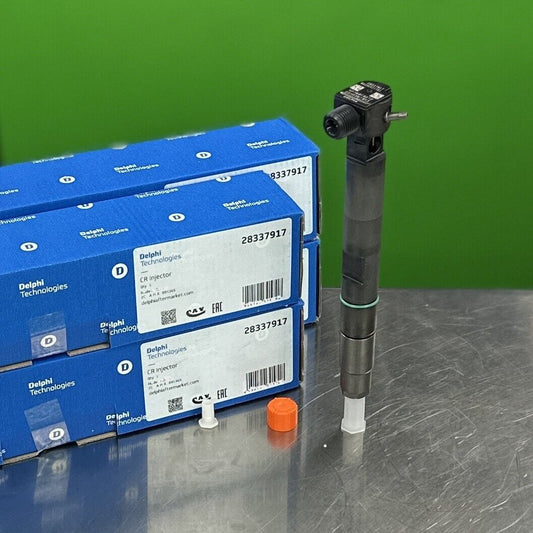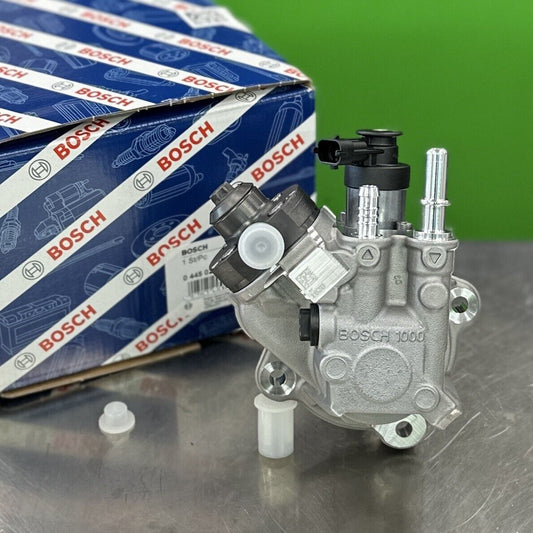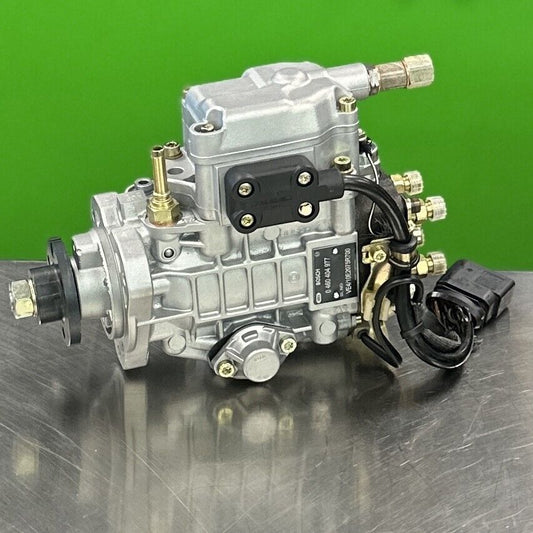Fuel Injector Problems: What Every Driver Should Know
When it comes to driving, there are certain things that every driver should be aware of to ensure a smooth and safe journey. One crucial aspect that often gets overlooked is the condition of the fuel injectors in your vehicle. Fuel injector problems can arise unexpectedly and cause a range of issues that can impact your driving experience. Understanding these issues, their causes, symptoms, and how to address them is essential for every driver. Let's dive into the world of fuel injector problems and equip ourselves with the knowledge needed to tackle them head-on.
Causes of Fuel Injector Problems
When it comes to fuel injector problems, there are several common causes that drivers should be aware of. One of the primary reasons for fuel injector malfunctions is clogging. Over time, dirt, debris, and carbon buildup can accumulate in the fuel injectors, obstructing the flow of fuel and affecting engine performance. Another common cause is leaks in the fuel injector system. Whether due to damaged O-rings or cracked injector bodies, leaks can lead to fuel wastage and engine inefficiency.
Electrical issues can also contribute to fuel injector problems. Faulty wiring or connections can disrupt the injector's ability to deliver the right amount of fuel to the engine, resulting in rough idling and poor acceleration. Additionally, poor fuel quality can have a significant impact on fuel injectors. Contaminants in the fuel can cause buildup and corrosion, leading to injector malfunction and engine issues.
In summary, the causes of fuel injector problems can range from clogging and leaks to electrical issues and poor fuel quality. Understanding these factors is essential for drivers to effectively address and prevent fuel injector issues, ensuring optimal engine performance and fuel efficiency.
Symptoms of Faulty Fuel Injectors
When it comes to faulty fuel injectors, your car may start exhibiting various warning signs that indicate potential issues lurking beneath the hood. These symptoms can range from subtle hints to more obvious red flags, all of which should not be ignored. Let's delve into the common indicators that your fuel injectors may be in trouble:
- Engine Misfires: One of the most prevalent symptoms of faulty fuel injectors is engine misfires, where the engine hesitates or jerks during acceleration. This can result in a lack of power and overall poor performance.
- Rough Idling: If you notice your engine idling roughly or unevenly when the car is stationary, it could be a sign of fuel injector issues. The engine may sound shaky or vibrate excessively.
- Poor Acceleration: Difficulty in accelerating smoothly or a sluggish response when pressing the gas pedal can also point towards fuel injector problems. Your car may struggle to pick up speed as usual.
- Decreased Fuel Efficiency: A sudden drop in fuel efficiency, where you find yourself visiting the gas station more frequently than usual, could be attributed to fuel injectors not functioning optimally. This can hit your wallet hard.
- Unusual Odors: If you detect strange odors emanating from your exhaust, such as a strong fuel smell or the scent of unburned gas, it could be a sign of fuel injector issues causing fuel to not burn efficiently.
These symptoms should serve as warning signals that prompt you to investigate further and address any potential fuel injector problems promptly. Ignoring these signs could lead to more severe engine issues and costly repairs down the road. Remember, a well-maintained car runs smoothly and efficiently, so staying vigilant and proactive in addressing any symptoms is crucial for the longevity of your vehicle.
Diagnostic and Repair Techniques
When it comes to dealing with fuel injector problems, understanding the diagnostic and repair techniques is crucial for every driver. By knowing how to identify issues and address them effectively, you can save both time and money in the long run. Diagnostic methods play a key role in determining the root cause of the problem, allowing for targeted repairs or replacements. One common diagnostic approach is the fuel pressure test, which helps assess the performance of the fuel injectors and the overall fuel system.
In addition to diagnostic tests, visual inspections can also provide valuable insights into the condition of the fuel injectors. By examining the injectors for signs of clogging, leaks, or damage, mechanics can determine the appropriate course of action. Moreover, using specialized tools and equipment can aid in diagnosing more complex injector issues that may not be visible to the naked eye.
When it comes to repairing faulty fuel injectors, the options vary depending on the extent of the problem. In some cases, a simple cleaning procedure may suffice to remove deposits and restore proper functionality. However, if the injectors are severely clogged or damaged, replacement may be necessary to ensure optimal engine performance.
It is essential to entrust diagnostic tests and repair tasks to qualified professionals who have the expertise and experience to handle fuel injector issues effectively. Attempting DIY repairs without the necessary knowledge and skills can lead to further damage and costly repairs down the line. By seeking professional help, you can ensure that the diagnostic and repair processes are carried out accurately and efficiently.
In conclusion, mastering the diagnostic and repair techniques for fuel injectors is essential for every driver who wants to maintain their vehicle's performance and efficiency. By staying proactive and addressing injector problems promptly, you can avoid unexpected breakdowns and costly repairs. Remember, prevention is always better than cure when it comes to maintaining your vehicle's fuel system.
Preventive Maintenance Tips
When it comes to maintaining the health of your vehicle's fuel injectors, preventive measures can go a long way in avoiding costly repairs and unexpected breakdowns. By following some simple yet effective tips, you can keep your fuel injectors in top condition and ensure optimal performance for your vehicle.
One of the most important preventive maintenance tips is to use high-quality fuel from reputable sources. Poor-quality fuel can contain contaminants that may clog or damage the fuel injectors over time. By opting for fuel from trusted sources, you can reduce the risk of injector issues and keep your engine running smoothly.
Regular maintenance plays a crucial role in preventing fuel injector problems. Make sure to adhere to your vehicle manufacturer's recommended maintenance schedule, which may include fuel system cleanings and inspections. By staying on top of routine maintenance tasks, you can catch potential issues early and address them before they escalate.
Using fuel additives can also help maintain the cleanliness and efficiency of your fuel injectors. These additives are designed to remove deposits and buildup inside the fuel system, including the injectors, and can improve fuel combustion and overall engine performance. Incorporating fuel additives into your maintenance routine can help extend the life of your fuel injectors.
Additionally, scheduling periodic inspections with a qualified mechanic can help identify any potential fuel injector issues before they worsen. Professional inspections can involve diagnostic tests to assess the condition of the injectors and the fuel system as a whole. By proactively addressing any issues that arise during these inspections, you can prevent major problems down the road.
In conclusion, by following these preventive maintenance tips, you can keep your fuel injectors in optimal condition and ensure the longevity and performance of your vehicle. Remember, a little maintenance now can save you from big headaches later on.
Frequently Asked Questions
-
What are the common causes of fuel injector problems?
Fuel injector issues can arise due to factors like clogging, leaks, electrical issues, and poor fuel quality. These issues can disrupt the proper functioning of the fuel injection system, leading to various performance issues in the vehicle.
-
How can I recognize if my fuel injectors are faulty?
Signs of faulty fuel injectors include engine misfires, rough idling, poor acceleration, decreased fuel efficiency, and unusual odors coming from the vehicle. If you notice any of these symptoms, it is advisable to have your fuel injectors inspected and serviced promptly.
-
What diagnostic and repair techniques are available for fuel injector problems?
Diagnostic methods for fuel injector issues include fuel pressure tests and visual inspections to identify the root cause of the problem. Repair options can range from cleaning the injectors to complete replacement, depending on the severity of the issue.
-
How can I prevent fuel injector problems?
Preventive maintenance tips for fuel injectors include using quality fuel, adhering to regular maintenance schedules, utilizing fuel additives, and scheduling professional inspections periodically. By following these practices, you can help prevent potential fuel injector issues and maintain the efficiency of your vehicle's fuel system.



